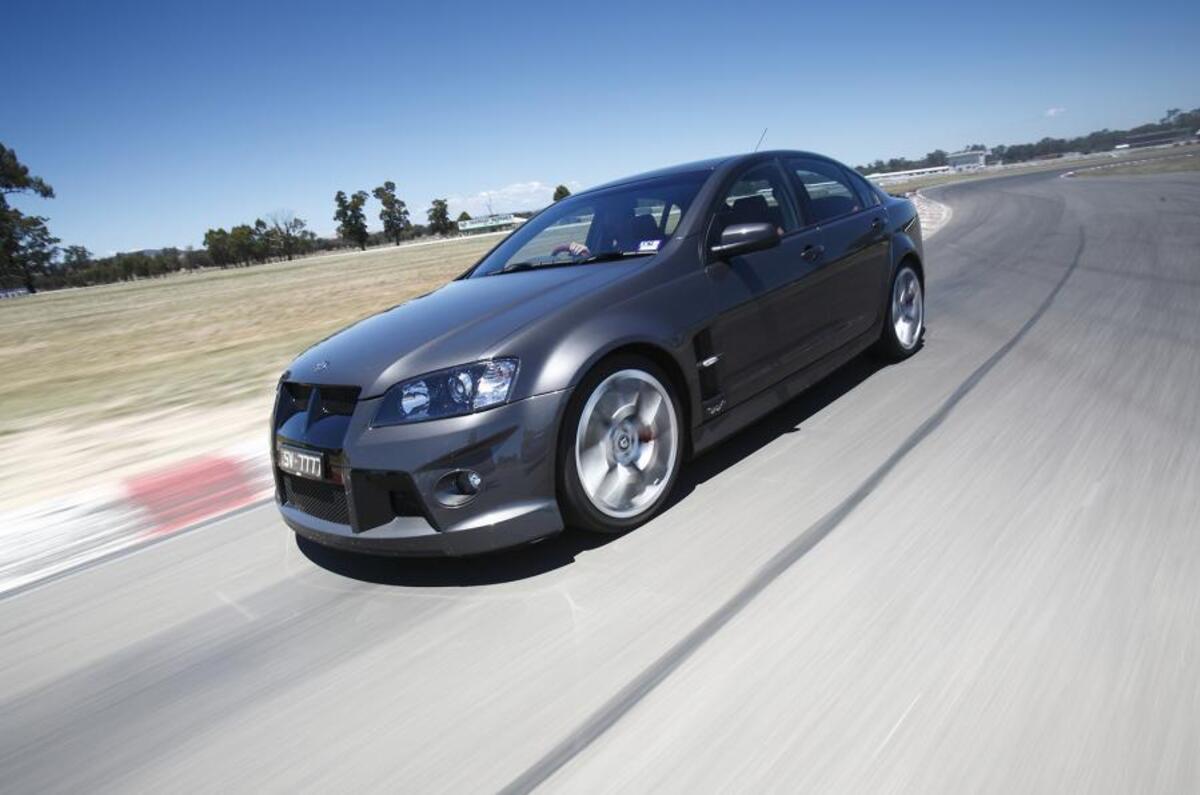The Holden brand will be axed by parent company General Motors (GM) by the end of 2021, ending the storied Australian brand’s 164-year history.
The company, founded in Melbourne in 1856, has been owned by GM since 1931. It dominated the Australian and New Zealand car markets for decades, but its market share slipped dramatically in recent years and it began to post heavy losses. In 2017, GM shut down Holden's manufacturing operations in Australia, leaving the firm selling a mix of imported and rebadged Opel and GM machines.
Steve Cropley: Holden's demise is sad, but inevitable
Julian Blissett, GM International Operations’ senior vice president, said that Holden would be “retired” because GM felt the investment required to make it competitive in the Australian and New Zealand markets outweighed the likely return. The American car-making giant said the decision was part of its efforts to "transform its international operations".
“Through its proud 160-year history, Holden has not only made cars, it has been a powerful driver of the industrialisation and advancement of Australia and New Zealand,” said Blissett. “Over recent years, as the industry underwent significant change globally and locally, we implemented a number of alternative strategies to try to sustain and improve the business, together with the local team.
“After comprehensive assessment, we regret that we could not prioritise the investment required for Holden to be successful for the long term in Australia and New Zealand, over all other considerations we have globally. This decision is based on global priorities and does not reflect the hard work, talent and professionalism of the Holden team.”
Blissett said GM’s would focus its future growth strategy in Australia and New Zealand on speciality vehicles, working with a number of partners.
GM boss Mary Berra added: “I’ve often said that we will do the right thing, even when it’s hard, and this is one of those times. We are restructuring our international operations, focusing on markets where we have the right strategies to drive robust returns, and prioritising global investments that will drive growth in the future of mobility, especially in the areas of EVs and AVs."
In response, Australian prime minister Scott Morrison said that he was "disappointed but not surprised. But I am angry, like I think many Australians would be." He added: "Australian taxpayers put millions into this multinational company. They let the brand just wither away on their watch. Now they are leaving it behind."








Join the debate
Add your comment
It is a shame that another
This is all a bit mystifying...
There may have been problems selling it on as a going concern, eg employing staff in unwanted facilities, but why didn't GM sell Holden to PSA as a repeat of Vauxhall?
Why didn't they sell the Thailand plant to their Chinese Asian region partner SAIC (although there is already an RHD MG plant there)?
I get the arguments that Australians want Japanese reliability but in the past Holden rebadged Suzukis - I also get the issues of adverse exchange rates and limited ongoing government support but is this down tol GM pride or basic incompetence?
Chris C wrote:
Thats easy - basic incompetence, its a GM speciality.
The learning to come
There's a lesson here for Vauxhall. Since 2014 Holden had to soldier on with rebadged GM product, either LHD models US ones expensively reengineered for RHD or LHD Korean-made products made in the former Daewoo plants or elsewhere in Asia. The problem was that attitudes had changed and Asian cars, whether Japanese, Korean and one assumes eventually Chinese became big enough and strong enough for Australian duty. Holden had no place to go as it no longer had the larger cars at lower price points. Competition killed Holden, not GM.
As for Vauxhall; it can't really rely on domestic British goodwill, jingoism - even in post-Brexit Britain won't be enough. Luckily they have, in PSA, an owner that understands that good product, well-made for the local market at a good price is key. Vauxhall just needs to hope they don't get cast-offs in the way Holden did as it atrophied.
Cersai Lannister wrote:
You seem to be totally unaware that Vauxhalls are simply re-badged Opels. They used to be built on sh*te GM platforms (or GM/Fiat ones in the case of the old Corsa) and from the latest Corsa onwards theyll be built on PSA platforms (in future PSA/FCA ones).